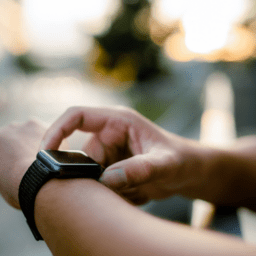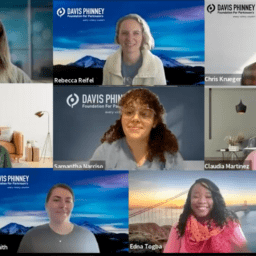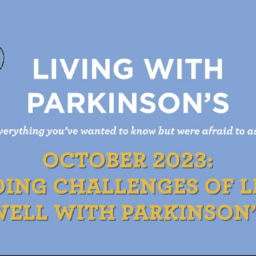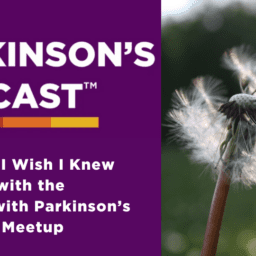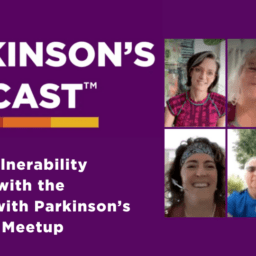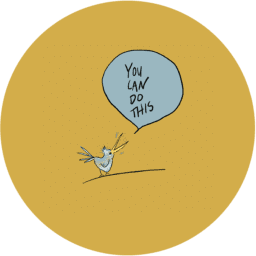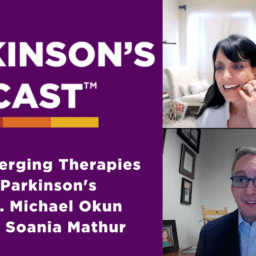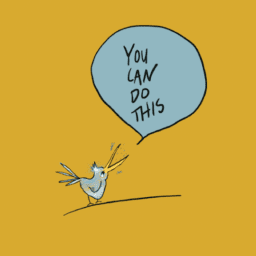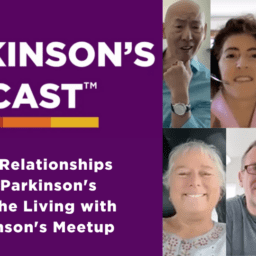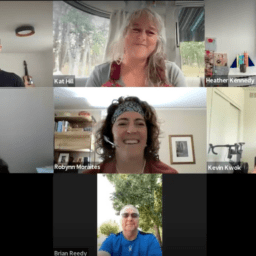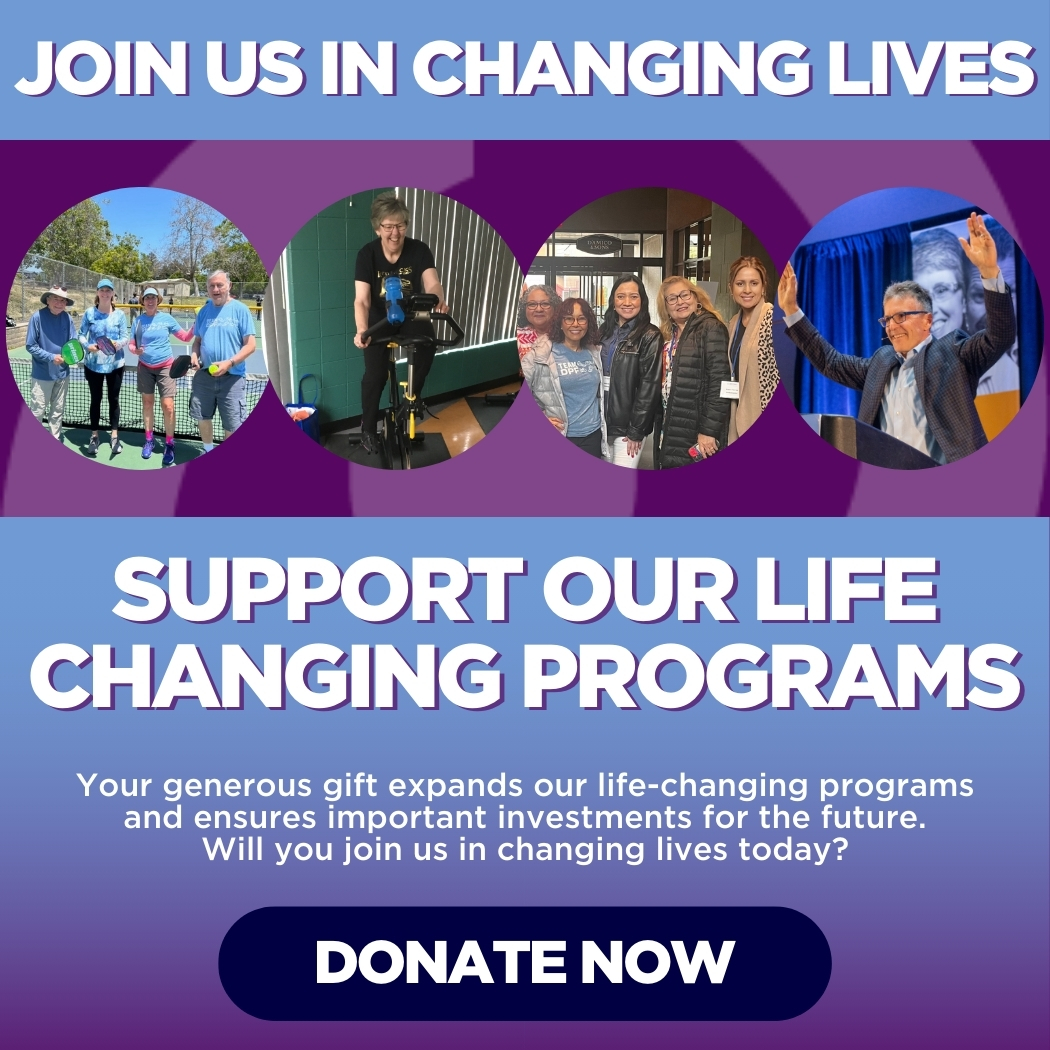Do you struggle with social isolation as a Parkinson's care partner? In this interview, Dr. Jori Fleisher discusses her research into the benefits of in-home visits by specialists and peer mentoring for care partners.
You can read the transcript by clicking here.
Note: This is not a flawless, word-for-word transcript, but it’s close.
You can listen to the audio below or you can download it here.
Show Notes
Falling "out of the Loop of care"
Dr. Fleisher's research has explored how to help people with Parkinson's improve their quality of life if they are homebound or have fallen out of contact with their care team. Dr. Fleisher calls this being "out of the loop of care."
There are many reasons a person may fall out of contact with their care team, therefore leaving their "loop of care". For example, there may be practical limitations like financial difficulties or complications in accessing suitable transportation to visits, and the progression of Parkinson's can influence both of these factors. These issues may also cause people with Parkinson's to never connect with a Parkinson's specialist at all.
Why is connecting with people outside the "loop of care" important?
In Dr. Fleisher's early research on the homebound and "out of the loop of care" population, she and her team collected a list of people who had been seen at a Parkinson's clinic but had subsequently been out of contact for an extended period. The team visited these people at home four times over a year. The home visits included multiple Parkinson's surveys and evaluations. The team found that throughout the four visits, ratings for mobility, cognition, depression, and anxiety worsened, but the team also found that the ratings for quality of life did not worsen. This is unusual compared to Parkinson's-related studies that typically found that quality of life is rated lower as Parkinson's symptoms worsen.
In a follow-up study—the IN-HOME-PD study—Dr. Fleisher's team added a control group by matching people they would visit at home with people with comparable demographic information from a database of people with Parkinson's who had participated in a previous study. Dr. Fleisher and her team were excited to find that the home visits had another surprising influence on quality of life. In the IN-HOME-PD study, the group of people who received home visits tended to start with a worse bodily discomfort score—41.5 compared to 36.7 in the control group—but by the end of the series of visits, the home visit group's bodily discomfort scores were better than what the control group had even started at. This indicates to Dr. Fleisher that there are many ways to "move the needle" and help people with Parkinson's improve their quality of life.
Dr. Fleisher's research is also important because we know that people with Parkinson's who do not access medical care from Parkinson's specialists tend to be underrepresented in Parkinson's research. This underrepresentation leads to a gap in the understanding of Parkinson's; we understand more about the early and severe states of Parkinson's, but we understand comparably little about the experience of those just beginning to enter the advanced stages of Parkinson's.
Care Partners in Dr. Fleisher's Initial Research
Dr. Fleisher's home visit studies also collected information from care partners. Care partners provide at-home and out-of-clinic care support for over 83% of people with Parkinson's. These family care partners experience high levels of personal strain, burden, and depression. And unfortunately, having a care partner who experiences these feelings increases the likelihood that a person with Parkinson's will be hospitalized or placed in an assisted living environment.
In light of these facts, after recognizing that their home visit program benefited people with Parkinson's, Dr. Fleisher's team evaluated care-partner-reported strain levels throughout their initial study. They found that among this group of care partners caring for people with advanced Parkinson's, strain increased from mild to moderate over the year that the in-home visits were conducted. This finding suggested to the study team that family care partners need more support than even the four annual at-home visits they received from the health professionals.
What support might help care partners?
Considering the challenges expressed by care partners in their initial study, Dr. Fleisher's team added peer mentoring for care partners during the IN-HOME-PD study. Those who participated in peer mentoring had high satisfaction with the mentoring experience. Importantly, their levels of reported personal strain also stabilized throughout the study.
Dr. Fleisher's team then expanded their peer mentoring program. This expansion included training new mentors, recruiting new care partner mentees, and doing a focus group review and revision of the program. All participants found the calls helpful and would recommend the program to other care partners.
The results were encouraging. There were improvements in care partner depression scales for mentees in the program. Moreover, care partners from both the mentor and mentee groups increased their knowledge about Parkinsonism. Perhaps most significantly, 90% of mentors said they would like to return to the program, and 50% of mentees said that they'd like to be mentors, even while continuing to care for their family member.
Dr. Fleisher's team is planning a more extensive study to increase understanding of how to improve outcomes for Parkinson's care partners.
The Social Isolation Problem
Social isolation is associated with worse outcomes for people with Parkinson's, and Dr. Fleisher's research suggests that this is true for Parkinson's care partners as well.
It can be easy to feel isolated when navigating life with Parkinson's, but connecting with others who may have similar experiences can help alleviate stress and increase understanding. For example, consider joining our monthly care partner meetup, contacting one of our care partner ambassadors, or joining a local care partner support group.
Additional Resources
Davis Phinney Foundation Care Partner Monthly Meetup
Davis Phinney Foundation Ambassadors
How to Build Your Care Partner Care Team
Interdisciplinary Palliative Care for People with Advanced Parkinson’s: A View from the Home
Disease Severity and Quality of Life in Homebound People with Advanced Parkinson’s
AARP Applauds Executive Order on Family Caregivers, Early Educators, and Long-term Care Workers
About the Speaker
Dr. Jori Fleisher, MD, MSCE, FAAN
Leslie Nan Burridge Endowed Faculty Scholar in Parkinson’s Disease Research, Associate Professor of Neurological Sciences at Rush University Medical Center
Location: Chicago, IL
Thank You to Our 2023 Live Well Today Webinar Series Presenting Sponsors
*While the generous support of our sponsors makes our educational programs available, their donations do not influence Davis Phinney Foundation content, perspective, or speaker selection.





